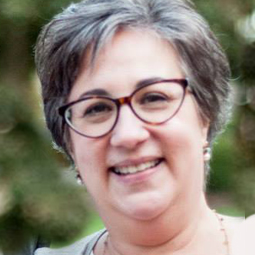Commentary on Parshat Korach (Numbers 16:1 – 18:32)
When Rep. Alexandria Ocasio-Cortez of New York used the phrase “concentration camps” to characterize the United States’ detention facilities for migrants, a fiery debate arose throughout America. One side argued that nothing could ever be as hellish as the Holocaust, so we must never compare anything to it. The other side contended that if the Holocaust is to be a cautionary tale, if we are serious about “never again,” then we must name similarities when we see them.
Many analysts have dissected the argument on the grounds of semantics, history, and perspective, and those are readily available. In the meantime, our government is still separating children from parents, detaining children for up to three and a half weeks, and not attending adequately to their needs. That is, all we do is argue; nothing is changing for the children.
One eyewitness account (read this New Yorker article here) describes the children’s sleeping arrangements:
Many of the children reported sleeping on the concrete floor. They are being given army blankets, those wool-type blankets that are really harsh. Most of the children said they’re being given two blankets, one to put beneath them on the floor. Some of the children are describing just being given one blanket and having to decide whether to put it under them or over them, because there is air-conditioning at this facility. And so they’re having to make a choice about, do I try to protect myself from the cement, or do I try to keep warm?
As students of Torah, we have a unique opportunity to look at the discussion through the lens of this week’s Torah portion, Korach.
Sign up to receive Torah from T’ruah in your inbox each week.
In Jewish lore, Korach represents the demagogue leader who lusts for power in order to satisfy his own needs rather than those of the people. He and his band of communal leaders assert their religious status as equal to that of Moses and Aaron:
They combined against Moses and Aaron and said to them, “You have gone too far! For all the community are holy, all of them, and the Eternal is in their midst. Why then do you raise yourselves above the Eternal’s congregation?” (Bamidbar 16:3)
Our tradition recognizes the machloket (debate or conflict) created by Korach and his men to be so problematic that the rabbis set up a dichotomy with Korach on one side and rabbinic sages Hillel and Shammai on the other. In Pirkei Avot, we learn that squabbles based on jealousy or unfounded anger are considered to be “lo l’shem shemayim,” or “not for the sake of Heaven.” On the other hand, disputes over ritual, moral, or ethical purposes are worthy matters upon which to disagree; this type of disagreement is called “l’shem shamayim,” or for the sake of Heaven.
The Mishnah goes on to describe the results of these two types of debates:
Any machloket (debate) that is for the sake of heaven, in the end it will stand/be established. And that which is not for the sake of heaven, in the end it will not stand/be established. (Pirkei Avot 5:17)
Rabbi Ovadiah ben Avraham (The Bartanura) commented on this mishnah with respect to the outcomes of each type of disagreement:
I have heard that “in the end” refers to the goal and purpose of the debate. A machloket for the sake of heaven has the goal of seeking the truth, and that stands, as they say — through debate the truth becomes clear, as it became clear through the debate of Hillel and Shammai that the halacha [Jewish law] followed the School of Hillel. A machloket that is not for the sake of heaven, its goal is domination and a love of winning…
Given this rabbinic understanding of the nature and consequences of disagreement, it is clear that Korach’s rebellion was unworthy, not because he challenged authority, but because he was jealous and competitive. And it is not at all surprising that the rebellion ended with the earth opening up and swallowing Korach and his followers.
Find more commentaries on Parshat Korach
In the debate about what to call the detention camps, our Mishnah calls us challenge ourselves: Are we trying to make a moral claim that would lay an obligation on us — which would be l’shem shamayim — or are we mostly trying to discredit our political opponents? And with Bartanura we ask, what is the outcome of our machloket? While we are arguing, children (some as young as toddlers) are suffering.
Yeshayahu Leibowitz’s commentary (quoted in Etz Hayim, p. 861) on Korach’s claim offers a direction out of the current situation. Leibowitz teaches that by claiming, “All the community are holy,” Korach suggests that we have already achieved our goal. In contrast, the Holiness Code (Leviticus 19) challenges us to continually become holy.
 Likewise, we as a nation must continue to strive, not for the perfect words to describe a situation, but for solutions to the situation. These solutions may or may not bring us closer to holiness, but they might just get children off the cold hard floor.
Likewise, we as a nation must continue to strive, not for the perfect words to describe a situation, but for solutions to the situation. These solutions may or may not bring us closer to holiness, but they might just get children off the cold hard floor.
Rabbi Sharyn Henry is a rabbi at Rodef Shalom Congregation in Pittsburgh. She was in the first group of “Tomato Rabbis” to visit Immokalee with T’ruah, a trip that changed her life.


